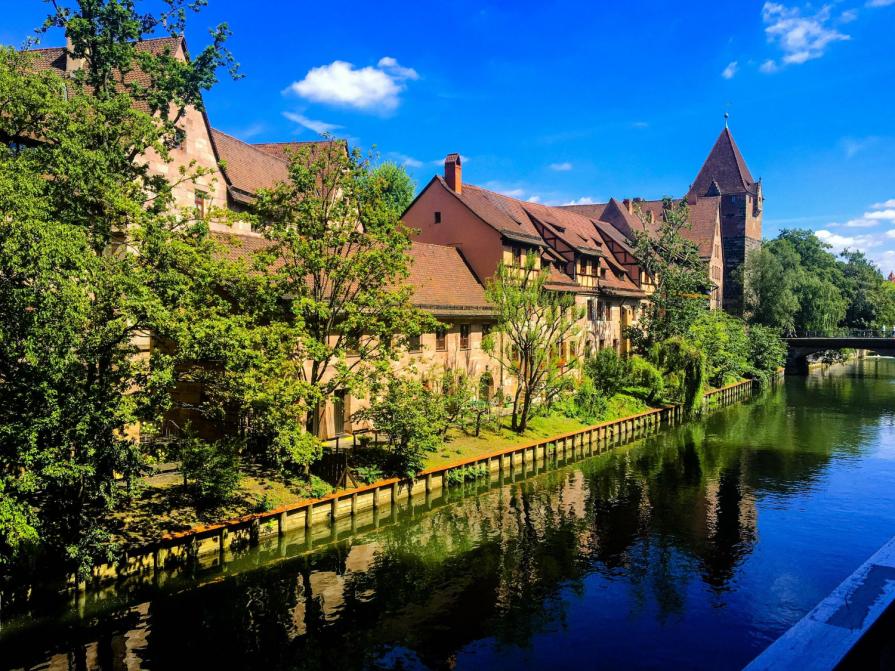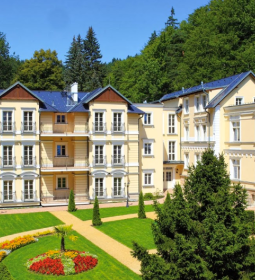The state was named in honor of the currently ruling dynasty von und zu Liechtenstein - there are currently only three such countries on the planet: Saudi Arabia bears the name of the House of Saud, and Jordan is called the Hashemite Kingdom (respectively, in honor of the ruling Hashemite family). At the same time, the country is so modest in size that in less than an hour it can be crossed by car in any direction, and in one and a half - go around the perimeter. Liechtenstein is sandwiched between the Austrians and the Swiss and could be reunited with them, but it stubbornly clings to its independence, as well as to the feudal rights of the prince, one of the last monarchs in the world to have the sole adoption of laws.
-
- Liechtenstein is a Principality
Like many other European countries, Liechtenstein is a constitutional monarchy, with the only difference being that the place of king or queen is occupied by a prince. The current prince's name is Alois, he took the throne in 2004.

The history of this state dates back to the XII century: then Charles I of Liechtenstein became a prince thanks to the patronage of Emperor Matthias, the head of the Holy Roman Empire. His son acquired the lands of Schellenberg and the county of Vaduz, both of which were not bound by anything other than the obligation to remain loyal to the emperor.
By the way, today this sovereign European house, in theory, can claim the British throne as the closest relatives of the Jacobite dynasty.
On the other hand, Liechtenstein is no stranger to progress: Prince Maximilian was the first European monarch to marry a woman of African descent originally from Latin America.
-
- It is one of the smallest countries in the world
As we have already mentioned, it is a small state. Just very small! But at the same time, against the backdrop of such crumbs as the Vatican, San Marino or Monaco, there is still room to turn around: 38,000 inhabitants of Liechtenstein live on 160 square kilometers.
Despite its modest size, the country is a full member of the UN, UNESCO, IOC and a dozen other international organizations, but not NATO and not the European Union or the Eurozone - they believe that these supranational bodies are not able to benefit the state, they will only plunge it into additional costs.
-
- Liechtenstein raised money for the country by selling its art
Since the country and the ruling house are closely intertwined with destinies, the financial well-being of the family is directly dependent on the completeness of the treasury - and vice versa.
Over the centuries of its existence, such an old sovereign house has been able to acquire a good collection of sculpture and painting. Therefore, when in the late 1960s the country had difficulties with debts, the prince decided to sell under the hammer a copy of the painting "Ginevra de Benci" by the great da Vinci. After paying a record $5 million at the time, the artwork went to the National Gallery of Art in Washington, D.C.
Today the collection is divided into 2 parts - in Vienna and Vaduz, the capital of the principality.
Along with the sale, Liechtenstein also rents out works of art for display in museums around the world.

-
- The prince offered to sell the country to Bill Gates
In 2001, the ruler decided to expand his rights, he had few rights and privileges, such as the introduction of laws by his will. He wanted to veto parliamentary bills and get the opportunity to form the judiciary. This sparked a powerful debate, and the prince, arguing, threatened to leave the principality and take all his property to Vienna, and sell the country to some billionaire like Bill Gates. This decided the matter: the people supported their monarch in a referendum, and the amendments were adopted.
-
- The Liechtenstein family is collectively a billionaire
The House of Liechtenstein is legally the richest sovereign family in the EU. Technically, the monarchs of Britain are richer, but there most of the assets belong to a legal entity controlled by the British authorities, The Crown Estate. Despite the fact that the latter owns assets worth 70-80 billion euros, the personal capital of Charles III does not exceed 500-550 million; and Liechtenstein can put all 5 or even 6 billion on the barrel. And here we are talking entirely about personal property. The lion's share of it is a private bank called LGT Group: it is a legal business that has nothing to do with state institutions.
-
- Switzerland once accidentally captured Liechtenstein
The border between Switzerland and Liechtenstein is open and not marked in any way. Is it any wonder that there have been several incidents in history when the Swiss military accidentally entered the territory of Liechtenstein!
The most famous incident occurred in 2007, when 171 Swiss soldiers turned the wrong way in bad weather and ended up in Liechtenstein. They did not have time to drive to Liechtenstein more than 2 km, as they realized the mistake and turned back. No one in Liechtenstein even knew it had happened until the Swiss issued a formal apology. They brushed it off: they say, they didn't arrive with attack helicopters, and that's okay. And in 1968 and 1985 artillery shells from Switzerland fell on the territory of the principality, but there were no fatalities.

-
- Liechtenstein is twice landlocked
This means that not only does the state itself have no maritime borders, but its neighbors are deprived of such borders: Switzerland and Austria do not have maritime borders. In addition to Liechtenstein, there is only one country in the world that has a similar status - Uzbekistan.
-
- Liechtenstein has won more Olympic medals per capita than any other country
Thanks to the efforts of the IOC, dozens of small states are represented at the Olympics, in fact, deprived of the chance to win any awards. Therefore, the national teams of Tuvalu and San Marino proudly walk among the victorious Chinese, Americans and Germans.
But there is an exception: the state, both small and often achieving sporting success, Liechtenstein lists 10 awards on its medal balance, mostly of silver dignity. All achievements are concentrated in one area - alpine skiing, which is not surprising, given the location of Liechtenstein. At the same time, one medal here falls on 3500 citizens.
-
- The prince invites everyone in the country for a drink
Every year on August 15, all residents of the country receive an invitation to a reception at the royal castle, where fireworks and snacks with light alcohol are arranged for guests. This is probably the only such case in the world!

-
- It is the false teeth capital of the world
A modest principality contributes to the global economy. For example, one local firm exports up to a quarter of the world's total production of dentures and other dental products, including instruments and medical toothpastes.
-
- In the past, you could book an entire country on Airbnb
Once it was possible to book the entire principality on Airbnb. This happened in 2011, when for a modest $ 70,000, a generous buyer could get 150 beds, keys to the principality, the temporary right to print money and rename city streets. What came of it, we will never know - the offer remained unbought.
-
- The national anthem of Liechtenstein is based on the same melody as the British one
The national anthem of Liechtenstein is called Oben am jungen Rhein ("Over the young Rhine"). If you find a song on the net and listen to it, you will notice familiar notes: this is the British anthem with different words.
A century and a half ago, this composition was used for a whole conglomerate of German states, including Prussia, Bavaria, Saxony, Württemberg and Switzerland. Of these, 4 lost their independence, and the Swiss picked up something more appropriate to the moment, but Liechtenstein, as befits a monarchy, remained faithful to traditions.
-
- The flag was once similar to the flag of Haiti
Along with the anthem, the flag of another country was also used here. For the first time it was raised over the castle of Vaduz in 1764, but in 1936 at the Berlin Games, residents discovered a second flag of the same kind - Haitian, blue and red. To avoid confusion, the Liechtenstein Heraldic Commission added a crown to the upper left corner.
-
- The last country in Europe that gave a woman the right to vote
Liechtenstein women only in 1984, after a constitutional referendum, in which, by the way, only men had the right to participate, received the right to vote with a margin of 0.5% and 37 votes.

-
- 11 municipalities in Liechtenstein have the right to secede
Administratively, the country consists of 11 municipalities, and according to the constitution, each of them has the right to secede - provided that local residents vote for it. Hypothetically, one of the tiniest states on the globe could spawn 11 more, small smaller.
-
- More soldiers come from the war here than go to it
The last time the principality took part in the war was in 1866, during the events of the Austro-Prussian War for hegemony in southern Germany. All principalities then supported one side or the other, except Hanover. 80 soldiers went to fight, and 81 returned: on the march they were joined by an Italian who decided: why not? He was enrolled in a company and given a gun, and then a place in the barracks.







